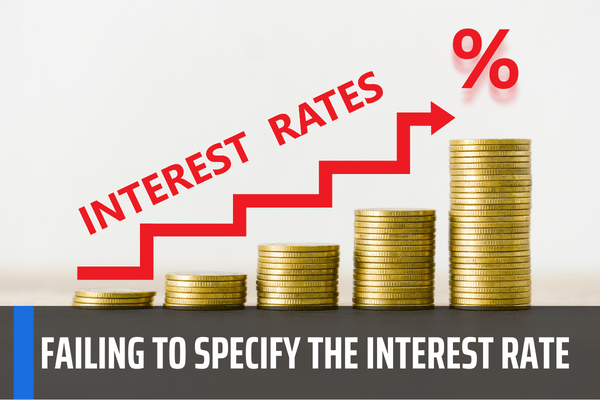Vietnam: Where parties fail to specify the interest rate in the contract, how to calculate the rate of interest for the loan?
- What are the obligations of borrowers in Vietnam?
- Vietnam: Where parties fail to specify the interest rate in the contract, how to calculate the rate of interest for the loan?
- Vietnam: If the interest rate is higher than the prescribed interest rate, will the lender be prosecuted for criminal liability?
What are the obligations of borrowers in Vietnam?
Pursuant to Article 466 of the 2015 Civil Code, the obligations of the borrower are as follows:
Obligations of borrowers to repay loans
1. Where the property lent is a sum of money, the borrower must repay the lender the loan in full when due. If the property is an object, the borrower must deliver to the lender an object of the same type, quantity and quality, unless otherwise agreed.
2. Where a borrower is not able to deliver an object, it may, with the consent of the lender, repay the value of the borrowed object, in cash, as at the time and place of delivery.
3. The place for repayment of a loan shall be the place of residence or head office of the lender, unless otherwise agreed.
4. If a borrower fails to repay all or any instalment of an interest-free loan, in whole or in part, when payment falls due, the borrower must, if the parties so agree, pay interest on the overdue amount from the due date until the date on which payment is made, at the basic interest rate prescribed in Clause 2 Article 468 of this Code, unless otherwise agreed or otherwise prescribed by law.
5. If a borrower fails to repay, in whole or in part, a loan with interest, the borrower must pay:
a) Interest on the principal as agreed in proportion to the overdue loan term and interest at the rate prescribed in Clause 2 Article 468 in case of late payment;
b) Overdue interest on the principal equals one hundred and fifty (150) per cent of the interest rate in proportion to the late payment period, unless otherwise agreed.
Thus, where the property lent is a sum of money, the borrower must repay the lender the loan in full when due. If the property is an object, the borrower must deliver to the lender an object of the same type, quantity and quality, unless otherwise agreed.

Vietnam: Where parties fail to specify the interest rate in the contract, how to calculate the rate of interest for the loan?
Vietnam: Where parties fail to specify the interest rate in the contract, how to calculate the rate of interest for the loan?
Pursuant to Article 468 of the 2015 Civil Code, interest rates in Vietnam are as follows:
Interest rates
1. The rate of interest for a loan shall be as agreed by the parties.
The rate of interest for a loan agreed by the parties may not exceed 20% per year, unless otherwise prescribed by law. According to actual conditions and at the proposal of the Government, the Standing Committee of National Assembly shall adjust the above interest and send report to the National Assembly at the latest session.
If the agreed interest exceeds the maximum interest prescribed in this Clause, the agreed interest shall become invalid.
2. Where parties agree that interest will be payable but fail to specify the interest rate, or where there is a dispute as to the interest rate, the interest rate for the duration of the loan shall equal 50% of the maximum interest prescribed in Clause 1 of this Article at the repayment time.
According to the above regulations, the interest rates in Vietnam agreed by the parties may not exceed 20% per year, unless otherwise prescribed by law
Where parties agree that interest will be payable but fail to specify the interest rate, or where there is a dispute as to the interest rate, the interest rate for the duration of the loan shall equal 50% of the maximum interest (20%/year).
Vietnam: If the interest rate is higher than the prescribed interest rate, will the lender be prosecuted for criminal liability?
Pursuant to Article 201 of the Criminal Code 2015 (amended by point i, clause 2, Article 2 of the Law on amendments to the Criminal Code 2017), the crime of usury in civil transactions is as follows:
Usury in civil transactions
1. Any person who offers loans at an interest rate that is at least five times higher than the maximum interest rate specified in the Civil Code and earns an illegal profit of from VND 30,000,000 to under VND 100,000,000 or recommits this offence despite the fact that he/she has incurred an administrative penalty or has an unspent conviction for the same offence shall be liable to a fine of from VND 50,000,000 to VND 200,000,000 or face a penalty of up to 03 years' community sentence.
2. If the illegal profit earned is ≥ VND 100,000,000, the offender shall be liable to a fine of from VND 200,000,000 to VND 1,000,000,000 or face a penalty of 06 - 36 months' imprisonment.
3. The offender might also be liable to a fine of from VND 30,000,000 to VND 100,000,000, be prohibited from holding certain positions or doing certain works for 01 - 05 years.
Accordingly, if the lender offers a loan interest rate higher than the prescribed level, it may be charged with usury and prosecuted for criminal liability, specifically as follows:
- Offers loans at an interest rate that is at least five times higher than the maximum interest rate specified in the Civil Code
- Earns an illegal profit of from VND 30,000,000 to under VND 100,000,000 or recommits this offence despite the fact that he/she has incurred an administrative penalty or has an unspent conviction for the same offence.
LawNet
